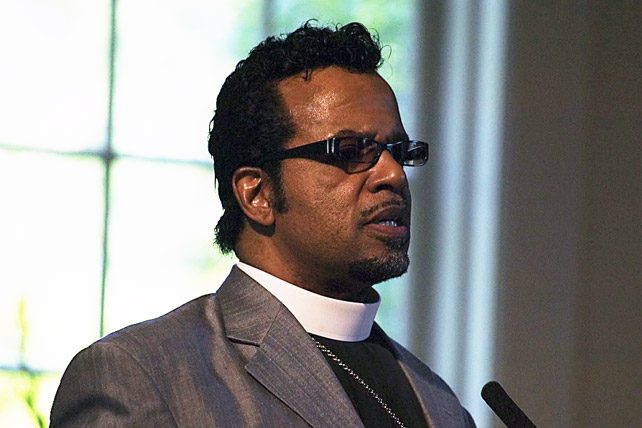Bishop Carlton Pearson, a prominent pastor who passed away last year, gained attention for his controversial beliefs and advocacy for inclusion within Christianity. Born in 1953 in San Diego, California, Pearson began his ministry at a young age and quickly rose to prominence as the pastor of Higher Dimensions Evangelistic Center in Tulsa, Oklahoma.
However, it was Pearson’s departure from traditional Christian beliefs that caused a stir. He came to embrace the concept of universal salvation, which challenges the idea of eternal damnation and asserts that all people will eventually be reconciled with God. This belief was heavily criticized by many within the Christian community, who labeled Pearson a heretic.
Pearson also became a vocal advocate for inclusion within Christianity, particularly when it came to LGBTQ+ rights. He believed that all people, regardless of their sexual orientation, should be fully welcomed and embraced by the church. This stance garnered both praise and backlash from various groups.
Tragically, Pearson’s life was cut short by his battle with cancer. He passed away on October 31, 2022, at the age of 70. Despite the controversy surrounding his beliefs, Pearson left behind a complex legacy that continues to spark mixed reactions. Some admire his courage to challenge traditional dogma, while others criticize him for straying from orthodox beliefs.
Pearson’s Embrace of Universal Salvation
Bishop Carlton Pearson experienced a significant shift in his beliefs, leading him to embrace the concept of universal salvation. This belief states that all people will ultimately be saved and reconciled with God, regardless of their religious affiliation or actions during their earthly lives.
Pearson’s journey towards universal salvation began after he questioned traditional beliefs about hell and eternal damnation. He started to question the idea that a loving God would condemn people to eternal punishment. Instead, he started to view salvation as a universal gift available to all.
Pearson held that this belief is rooted in several biblical passages, including 1 Timothy 2:4 which states that God “desires all people to be saved and to come to the knowledge of the truth.” Pearson also referenced verses such as Romans 5:18, which speaks of God’s grace and the reconciliation of all people through Jesus Christ.
By embracing universal salvation, Pearson challenged mainstream Christian teachings and faced significant backlash from fellow clergy members and religious communities. However, he remained steadfast in his belief, advocating for a more inclusive and compassionate understanding of God’s love and salvation.

